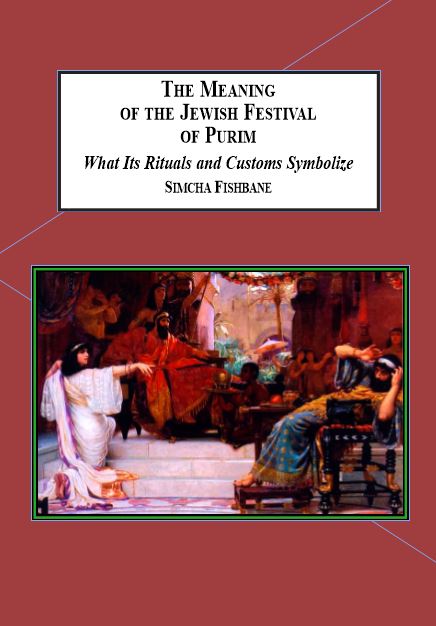This is our backup site. Click here to visit our main site at MellenPress.com
The Meaning of the Jewish Festival of Purim: What Its Rituals and Customs Symbolize

| Author: | Fishbane, Simcha | |
| Year: | 2017 | |
| Pages: | 128 | |
| ISBN: | 1-4955-0616-9 978-1-4955-0616-1 | |
| Price: | $79.95 | |
Dr. Fishbane’s monograph seeks to decode the implicit message encoded within some of the practices and customs of the holiday of Purim.
Reviews
"Purim is a one-day festival celebrating the victory of the Jews over their enemies, as told in the Book of Esther. The story is set in Persia in the Fifth century B.C.E. Purim is rich, not only in rituals common to other Jewish festivals such as specific prayers, festive meals and public readings of a scroll (Megillah), but also includes reversals of normative and expected Jewish behaviors. These religious rituals which deviate from the established norms practiced only on
Purim, which I beg for interpretation and understanding."
Purim, which I beg for interpretation and understanding."
Table of Contents
Introduction
Intent
Purim the Holiday
Setting the Stage: Purim in contemporary Orthodox Jewish Society
In contrast to other Jewish Holidays
Anthropological Models
Reading the Scroll of Esther
Customs relating to the reading of the Megillah
Rishonim
Opposition to the custom
Achronim
Costumes
Concluding Remarks
The Festive Meal (Seudat Purim)
The Meal
Presents to the Poor (Matanot Leavyonim)
Early Rabbinic documents
a. Rishonim
b.Aharonism
Concluding Remarks
Mishloach Manot (Gifts to Friends)
Reasons for the ritual of Mishloach Mant
Discussion
The Mitzvah of Simchah [Joyfulness]
Carnival, costumes, masks, skits and parody
Inebriation
1. Those who object to intoxication on Purim
a. Rishonim
b. Aharonim
2. Those who do not see the Practice as an obligation, but rather an advisable act (mitzvah bealma)
3. Those who require the practice of becoming inebriated on Purim
a. Rishonim
b. Aharonim
Final Thoughts concerning Drinking on Purim
Damage and Theft on Purim
Summary and Concluding Remarks
Rabbis Cited in this Work
Bibliography
Intent
Purim the Holiday
Setting the Stage: Purim in contemporary Orthodox Jewish Society
In contrast to other Jewish Holidays
Anthropological Models
Reading the Scroll of Esther
Customs relating to the reading of the Megillah
Rishonim
Opposition to the custom
Achronim
Costumes
Concluding Remarks
The Festive Meal (Seudat Purim)
The Meal
Presents to the Poor (Matanot Leavyonim)
Early Rabbinic documents
a. Rishonim
b.Aharonism
Concluding Remarks
Mishloach Manot (Gifts to Friends)
Reasons for the ritual of Mishloach Mant
Discussion
The Mitzvah of Simchah [Joyfulness]
Carnival, costumes, masks, skits and parody
Inebriation
1. Those who object to intoxication on Purim
a. Rishonim
b. Aharonim
2. Those who do not see the Practice as an obligation, but rather an advisable act (mitzvah bealma)
3. Those who require the practice of becoming inebriated on Purim
a. Rishonim
b. Aharonim
Final Thoughts concerning Drinking on Purim
Damage and Theft on Purim
Summary and Concluding Remarks
Rabbis Cited in this Work
Bibliography
